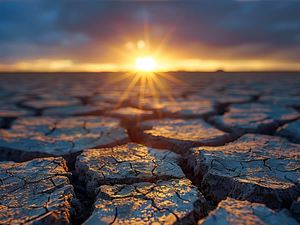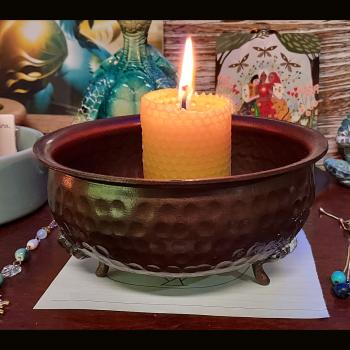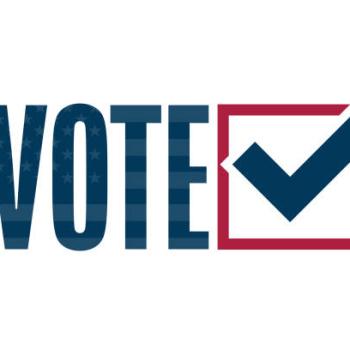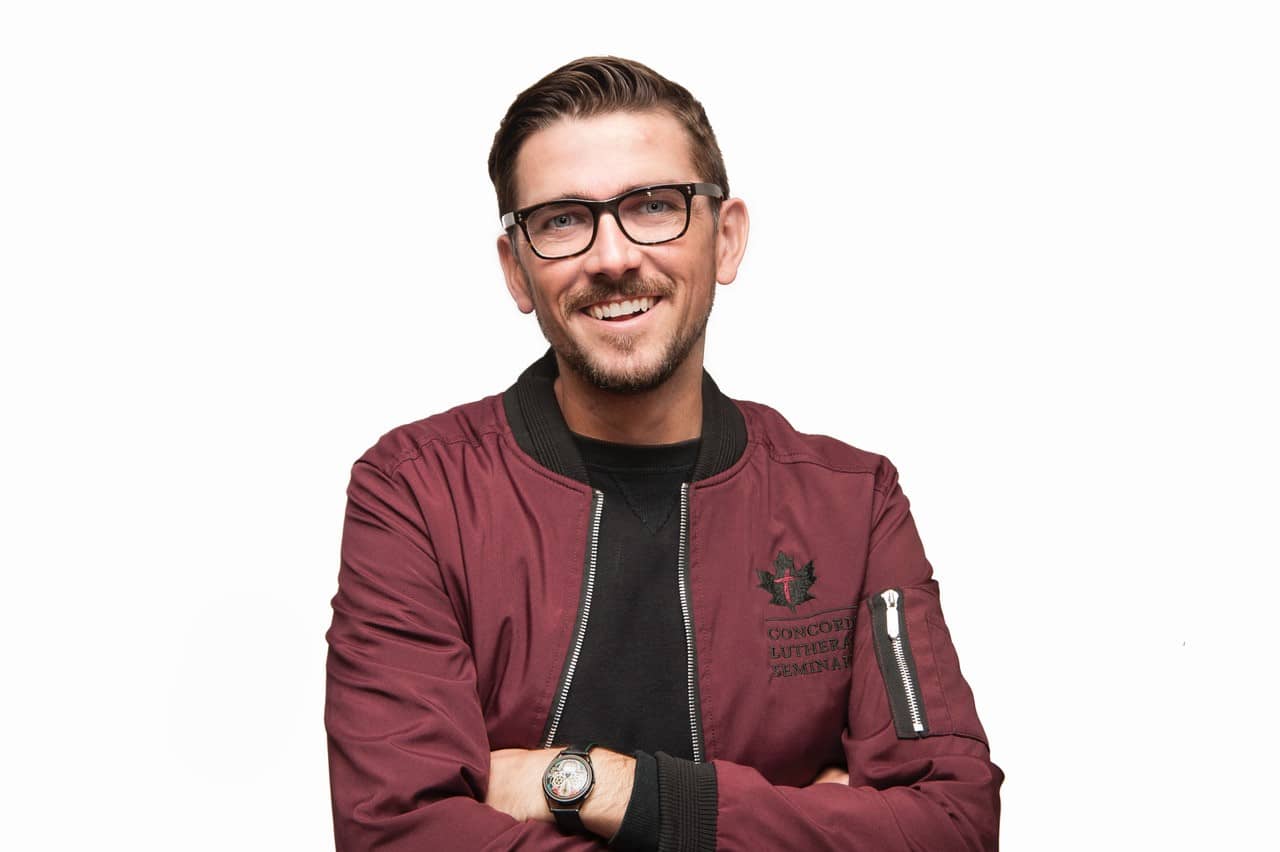
Climate change is happening.
I am not a scientist. Nor do I pretend to be. But drawing on information taken from natural sources — like ice cores, rocks, and tree rings — recorded by satellites, and processed with the aid of the most advanced computer processors the world has ever known, NASA experts report “there is unequivocal evidence that Earth is warming at an unprecedented rate” and that “[h]uman activity is the principal cause.”
From global temperature rise to melting ice sheets, glacial retreat to sea levels rising, the evidence of a warming planet abounds. While Earth’s climate has fluctuated throughout history, the current season of warming is happening at a rate not seen in 10 millennia — 10,000 years.
Many of the undergraduate students in courses introducing them to religious traditions — Islam, Christianity or otherwise — have no reservations about climate change and its disastrous effects on the environment and the most vulnerable in human society. In my classrooms, there is a palpable fear about the planet’s future.
It is little wonder, then, that students often ask how religious actors interpret their sacred texts and confessions or how they, in turn, address climate change or engage with the environment.
The “greening” of religion?
What they discover can often be disappointing — if not infuriating.
In his 1967 essay, “The Historical Roots of Our Ecological Crisis,” Lynn White Jr. claimed that the Judeo-Christian tradition had long promoted anthropocentric attitudes, which position humans as the most important element of existence above other beings. Subsequently, and with regard often only being given to humans in any given environment, the tradition promoted encouraged, developed and advanced environmentally destructive behaviors for centuries, seeding the roots of our contemporary ecological crisis.
In the decades that followed, some argued that religious communities were becoming more environmentally friendly, in what they saw as the “greening of religion.”
But in an article in 2016, Bron Taylor, Gretel Van Wieren and Bernard Daley Zaleha found that, to the contrary, religious communities and actors continued to hinder the environmental movement and actively contribute to climate change. This was largely thanks to certain theological orientations and beliefs about the role of divine agency in preventing or promoting natural events.
“On balance [and not withstanding the generally pro-environmental positions within indigenous traditions],” they wrote, “we found the thrust of White’s thesis is supported, whereas the greening-of-religion hypothesis is not.”
Though they left the door open to the possibility of helping religious individuals and groups more effectively mobilize and respond to contemporary environmental challenges, they largely believed it was not likely.
Religious actors, they surmised, were not reliable partners in pursuing climate justice.
Teaching religion in an age of climate anxiety
When I introduce students to these readings, they are often, visibly frustrated. Some, who come from a Judeo-Christian tradition, can feel disappointed in their religious forebears and downcast about the future.
Indeed, the effects of climate change can be paralyzingly scary. Terribly demoralizing. Every day, news media deliver fresh images, videos and headlines about climate-related disasters — devasting floods, disappearing lakes, a melting ‘doomsday glacier’—and the halting response of world leaders to act with urgency.
It’s no surprise that many are growing increasingly anxious about the perilous state of our planet. Mental health clinicians are seeing more patients come in with symptoms of climate change anxiety—also called eco-anxiety, eco-grief, or climate doom—and they’re not always sure what to do about it. It’s a trend that’s mirrored in public surveys and internet search data: Google searches for “climate anxiety” soared by 565 percent in 2021 alone.
And so, I take care to steward my students’ feelings in the religious studies classroom. After all, such a conversation is not a how-many-angels-can-dance-on-the-head-of-a-pin-one. This is not theoretical for them. It is life and death.
Environmental exemplars
Thus, I am careful to introduce them to religious actors who are drawing on their traditions to make a difference, who are mobilizing their communities to do somethingand who are providing some light on how we should live.
I introduce them to people like Tuenjai Deetes, a Thai Buddhist social and environmental activist who has dedicated more than four decades of her life to working on sustainable agriculture practices with the hill tribes of northern Thailand.
Another is David Rosen, former Chief Rabbi of Ireland and senior rabbi of the largest Orthodox Jewish congregation in South Africa, who helped found the Interfaith Rainforest Initiative, a global multi-faith alliance that aims to bring moral urgency and faith-based leadership to efforts to stop forest degradation and save earth’s lungs. He’s also a dedicated, practiced vegan who once told me that “veganism is the new kosher” for practicing Jews in a rapidly changing world.
Then there is Fachruddin Mangunjaya, a conservation biologist and pioneer of Islamic environmentalism, who trains religious leaders in Indonesia on how to promote wildlife conservation, forestry, and climate change awareness.
I also point to indigenous communities and traditions, such as that mentioned by Grand-Mother Marie-Josée Rankin-Tardif, of the Algonquin peoples, who once said that if we did not address climate change, there would be no point in addressing issues like education, poverty, gender justice, war, or nuclear proliferation. “What good will our efforts do for the world if there is no world to do good for?” she asked.
Or, I mention people like Rachel Mander, a 20-something evangelical from Sheffield, England, who — at age 19 — started to see the connection between loving her neighbor and caring for creation. “It’s like looking for angels in the Bible,” she said. “You don’t notice how many there are until you actually look and then you see them popping up everywhere. Me and my friends started reexamining Scripture and seeing how being a person of faith means you care for the environment. Suddenly, it was on every page,” she told me. When I met Mander, she was one of the co-leaders of a 750-mile pilgrimage from the southwestern tip of the United Kingdom to Glasgow, Scotland, where that year’s UN Climate Change Conference was being held. The Young Christian Climate Network (YCCN) organized about 2,000 people to make the walk. Convicted that the climate crisis is pressing, urgent, and must be resolved in this generation, the participants — teenagers and people in their 20s — plead with church institutions, governments, and local congregations to take concrete steps to reduce carbon emissions — including calling for the Church of England to divest from fossil fuels.
In June 2023, the Church of England announced they had. No longer would they profit from the fossil fuel industry. Mander and other evangelicals across the UK — and beyond — rejoiced at the news.
Part of the problem, part of the solution
This edition of “What You Missed Without Religion Class” is not meant to come down on one side of the “greening of religion” debate or the other.
Instead, it is to point to how religious cultures, communities and actors are — like the rest of us — both active agents when it comes to the worst of climate change and leading some of the best of our efforts to limit its disastrous effects in this and subsequent generations.
What is important for me is that I direct students to the old religious studies adage that religions are what we make them. Whether or not they are “pro-environment” or “anti-ecological” is not only about the texts and traditions they draw from, but also the ways they interpret and apply them, re-interpret and translate them into action.
As we worry over how we shall live in a world on fire, it is important to point out that religious actors have often been part of the problem.
But also that many have been, and will continue to be, an active part of the solutions…if there are any to be found.
6/14/2024 12:12:54 AM





